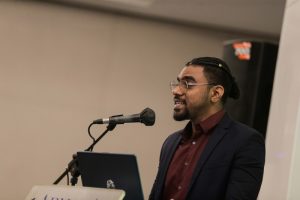Watchdog: Muhyiddin administration weaponised Covid-19 restrictions to stay in power

(MMO) – Human rights group Suara Rakyat Malaysia (Suaram) said today it found that the Tan Sri Muhyiddin Yassin administration’s restrictions to combat Covid-19 had helped its effort to maintain control of Putrajaya.
Women’s Aid Organisation’s (WAO) Ilaiya Barathi Panneerselvam, who presented the report’s findings, accused Muhyiddin and his Cabinet of weaponising the declaration of a state of emergency and legal provisions against critics of the government.
“This period was seen as an exacerbation of human rights violations and suspensions of parliamentary democracy due to the government striving to hold onto power,” he said at the report’s launch this morning.
According to the report’s executive summary, the restrictive policies which were undertaken by Muhyiddin’s government did not meet standards of legality, necessity, proportionality and non-discrimination.
In relation to that, these policies will have a long-reaching impact on the political and human rights situation in Malaysia, it said.
Ilaiya also noted that the unpopularity of multiple lockdowns had led to politicians on all sides pointing fingers at Muhyiddin and calling for his resignation, but the prime minister at the time instead proposed the proclamation of a national Emergency, seemingly to combat the rising cases.
He went on to explain that the Emergency, which lasted from January 11, 2021 to August 1 of the same year, removed the access of Malaysians to the country’s most significant democratic avenues: Parliament and streets.
“Critics were sceptical of the justifications, believing the move, which was the nationwide Emergency, was an attempt to sustain the government’s dwindling authority and political power,” he said.
Moreover, the then federal government’s response of not postponing elections, open campaigning and reducing quarantine periods all contributed to the rise of infections, Ilaiya said, providing the example of the Sabah state elections in 2020 which precipitated the third wave of Covid-19 infections in the country.
“The National University of Singapore found that the Sabah election contributed 70 per cent of cases in the state itself and at least 64 per cent in the rest of the country,” he said.
The report used information from independent media organisations and government websites and interviewed Malaysian civil society members active in the human rights sector.
The report also incorporates findings from October 2021 National Policy Dialogue, which featured 17 individuals including three who were MPs at the time and two former commissioners from the Human Rights Commission of Malaysia (Suhakam).
Muhyiddin became prime minister after his Parti Pribumi Bersatu Malaysia engineered a coup called the “Sheraton Move” against the Pakatan Harapan government which won the 2018 election, but was forced to step down due to waning popular support to be replaced by the Datuk Seri Ismail Sabri.
A coalition between PH, Barisan Nasional and others managed to form the federal government instead after the 15th general election, with Prime Minister Datuk Seri Anwar Ibrahim leading it now.

